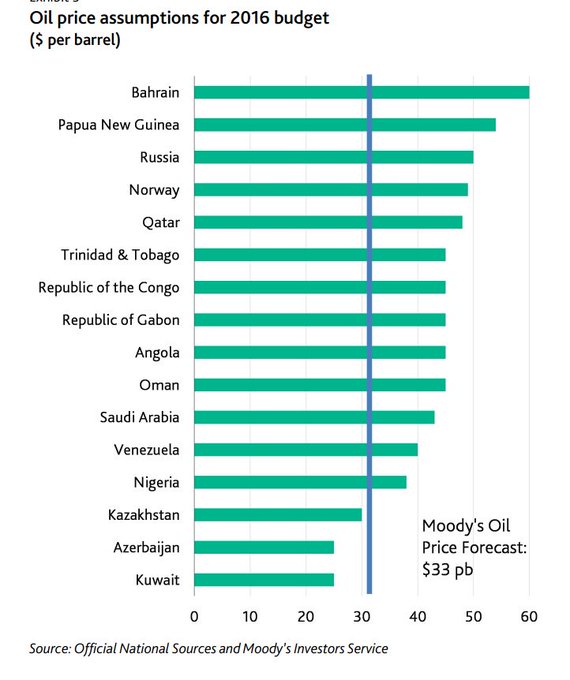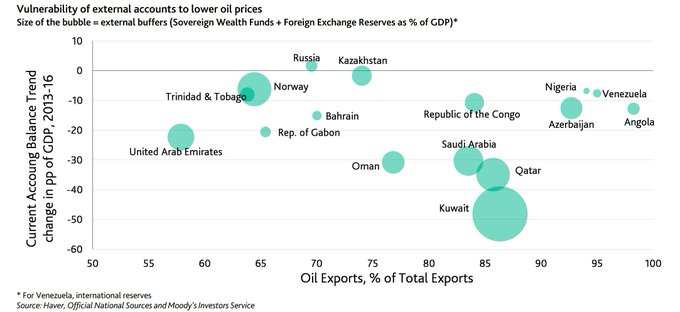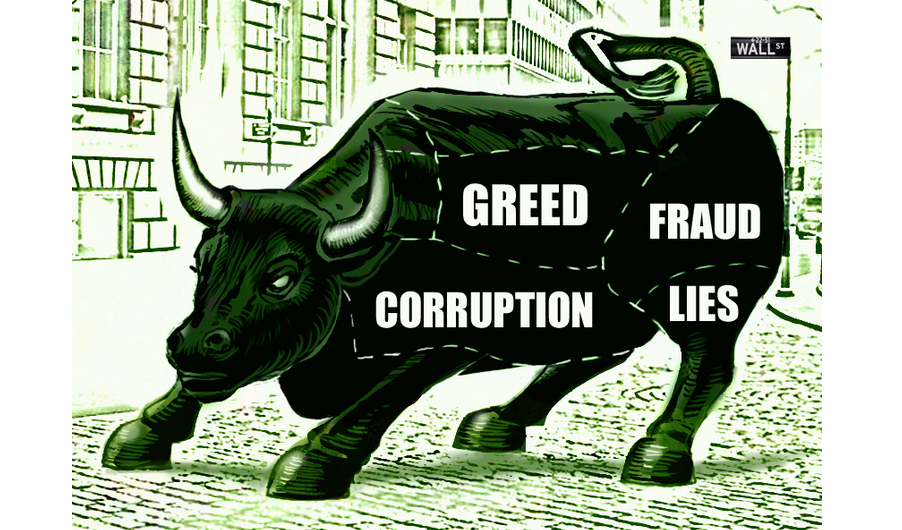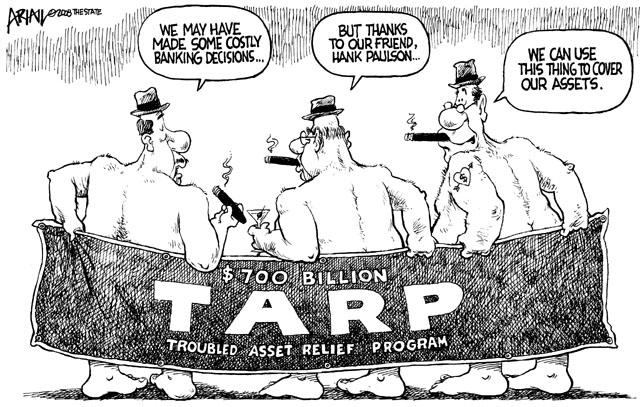Welcome to this week's Market Wrap Podcast, I'm Mike Gleason. Coming
up we'll hear an encore presentation of my conversation with Steve
Forbes. Mr. Forbes recently gave an explosive interview about the
presidential election and why he believes the time is now for America to
return to the gold standard. My interview with Steve Forbes,
billionaire investor and CEO of Forbes, Inc., coming up after this
week's market update.
Gold is indeed back in 2016, and in a big way. After powering ahead
by 17% through the first two months of the year, the yellow metal is now
off to a hot start in March.
It's no longer just the fear trade that's driving gold buying. The
narrative from the mainstream financial media has been that gold is just
benefiting from recession fears and a flight out of stocks, junk bonds,
and other risk assets. But the gold market is now showing strength even
on days when other financial assets gain.
Investors bid up stocks this week on the heels of a recovery in the
energy sector and on hopes for an upbeat jobs report on Friday. The
S&P 500 gained more than 2% through Thursday's close. Yet gold also
finished Thursday with significant gains on the week. Gold prices hit
fresh new highs for the year. As of this Friday recording, gold is
rallying again today and trades at $1,276 an ounce, up 4.2% on the week.
Of course, the naysayers can point to the fact that other metals are
failing to confirm gold's breakout. Silver, platinum, and palladium –
not to mention copper, crude oil, and other commodities – have been
underperforming in recent months. But in recent days, oil and base metal
prices have popped.
And this week saw a HUGE pop from the streakiest precious metal:
palladium. As of this recording, palladium shows a weekly gain of 14.0%
to trade at $553 an ounce. Its sister metal platinum is also up, with
prices advancing 5.7% this week to $968.
Platinum has severely underperformed gold since 2008, when the
platinum to gold ratio peaked at 2.4 to 1. From being 2.4 times more
expensive than gold, platinum has since gotten cheaper and cheaper
relative to gold. Today, it's cheaper than gold on an absolute basis.
Platinum prices are now historically low versus the yellow metal, with
the ratio coming in at 0.75 to 1. At some point, platinum is likely to
again trade higher per ounce than gold, in line with the historical
norm.
Investors who want to add some platinum into their mix of precious
metals bullion holdings have a few options, including 1-ounce
. A new and convenient way to accumulate platinum on a small scale is with the new
. They currently sell for less than $50 each at
. Meanwhile, we've also added a
to our ever growing product lineup as well.
Value opportunities also exist in silver – which, like platinum,
looks super cheap relative to gold. The silver to gold ratio now sits
almost exactly at the 2008 crisis low, which itself was a multi-decade
low. Silver prices are up sharply today coming in now at $15.70 an
ounce, and are up 6.4% this week and the current ratio is 81.2 to 1.
Contrarian investors are snatching up silver coins in a big way.
After last year's record-setting demand numbers for Silver Eagles, the
U.S. Mint appears unable to keep up with the incredibly strong demand it
has been hit with so far this year. The U.S. Mint's sales numbers for
January and February show that it has already sold more Silver Eagles so
far in 2016 than it did in any year prior to 2008!
But if demand remains this strong, you can expect the government-run
mint to struggle mightily. Federal bureaucrats' habit when faced with
dynamic market conditions that drive unexpectedly high demand is to put
limits on sales. The rationing of Silver Eagles could cause premiums on
the popular coins to rise once again, something we've seen happen many
times over the last few years during periods of extreme buying activity.
But for now, other government mints and private mints are keeping the
retail bullion market supplied with plenty of lower-premium silver
products.
You tend to get the most silver for your dollar with large 100-ounce
bullion bars. But this isn't a very convenient way for most people to
hold silver. Far more practical for hoarding, transporting, and
bartering are 1-ounce bars and rounds produced by private mints. They
can still be had for close to melt value – and at a significant savings
to Silver Eagles and other government-minted coins.
Well now, without further delay, let's get right to this week's exclusive interview.
 Mike Gleason, Director, Money Metals Exchange:
Mike Gleason, Director, Money Metals Exchange: It is
my great privilege to welcome Steve Forbes, Editor-in-Chief of Forbes
Magazine, CEO of Forbes, Inc. to our Money Metals Exchange podcast.
Steve is also author of many fabulous books, including
Flat Tax Revolution, How Capitalism Will Save Us, and his latest work,
Reviving America: How Repealing Obamacare, Replacing the Tax Code and Reforming the Fed Will Restore Hope and Prosperity.
He's also a two-time Presidential candidate, having run in the
Republican primaries in both 1996 and 2000. It's a tremendous honor to
have him with us today. Mr. Forbes, thank you so much for joining us and
welcome.
Steve Forbes, CEO of Forbes, Inc.: Good to be with you, Mike. Thank you.
Mike Gleason: I want to start out by getting your
take on the 2016 Presidential election cycle, especially given your
first-hand experience in the whole process. We're seeing an
anti-Washington voter revolt of sorts... it's the anti-establishment
candidates that have been getting all the momentum. This is especially
true on the Republican side, where we see an outsider like Donald Trump
currently leading and guys like Ted Cruz, Ben Carson and others having
garnered a lot of support. But also on the Democratic side we're seeing
admitted Socialist Bernie Sanders starting to overtake Hillary Clinton
with his outsider bid. What's driving this phenomenon, and is this a
good thing or a bad thing?
Steve Forbes: What it demonstrates is the intense,
deep voter dissatisfaction with where the country is and fears about the
future. There's contempt for the political class for not being able to
handle things. There's the feeling that those who are in charge either
don't know what to do, or if they do they don't know how to do it, so
people are looking for outsiders for a fresh perspective. Just as in
business where incumbents get too comfortable, you always find the
entrepreneurial outsiders to challenge the status quo and upend things,
and you're seeing the same thing happening on the political side.
So who knows if Trump will go all the way, how far Bernie Sanders
will go, but it's a way of (at least for now) voters expressing
dissatisfaction, unhappiness, and saying we want positive change. You
cannot continue doing what you're doing.
Mike Gleason: The issue of sound money has been
getting more attention during the GOP debates than it has in several
decades. It's quite encouraging to us at Money Metals Exchange, as
proponents of precious metals ownership, to hear Cruz, Paul, Carson, and
even Trump bring up issues related to sound money such as reigning in
the Federal Reserve. returning to some sort of a gold standard, and
adoption of other measures to get America's fiscal house back in order.
I'm guessing you probably felt like a lone voice in the wilderness when
you raised these subjects during your Presidential runs. So among the
current candidates, who do you think best understands the problems
created by our current monetary policy and might actually do something
about it if elected President?
Steve Forbes: I think it's encouraging that a
growing number are recognizing there is a problem. Even before you get
to solutions you've got to recognize and acknowledge that the way things
are being done is not working and that the Federal Reserve has been a
huge factor in the sluggishness of the U.S. economy; very, very
destructive actions they've taken. I was delighted that Ted Cruz in one
of the debates brought up the idea of a gold standard. Rand Paul of
course was suckled on the idea of safe and sound money. Ben Carson has
made reference to it. Donald Trump has made noises about the Federal
Reserve. I think that's a good sign.
One of the things that really most of the economics profession
doesn't seem to get is that money is simply a means for us to buy and
sell with each other. It's like a claim check. You go to a restaurant,
check your coat, the claim check has no intrinsic value, but it's a
claim on the coat. Money is a claim on products and services. It has no
intrinsic value. What it does, it's like a claim check on products and
services. It works best when it has a fixed value.
Money measures value the way scales measure weight or clocks measure
time or rulers measure space and length, and it works best when it's
stable. The best way to get stable money, as we explained in our book
Reviving America,
is precisely to link it to gold the way we did for a hundred and eighty
years. It works. Gold is like a ruler. It has a stable value. When you
see the price fluctuate, that means that it's the dollar's value that's
fluctuating, people's feeling about it for the present and for the
future. But gold is like Polaris. It's the North Star. It's fixed.
Mike Gleason: That leads me right into my next question here. About a year ago you and Elizabeth Ames co-wrote the book titled
Money: How the Destruction of the Dollar Threatens the Global Economy and What We Can Do About It. You proposed a modified gold standard... and I'll quote here, and then I'd like to get your comments.
The twenty-first century gold standard would fix the dollar
to gold at a particular price. The Federal Reserve would use its tools,
primarily open market operations, to keep the value of the dollar tied
at that rate of gold.
What would be the main benefits of such a reform? And also I'm
curious why you stopped short of calling for an end to the Fed all
together and a return to true free markets when it comes to gold and the
rate of interest?
Steve Forbes: In terms of the role of the Federal
Reserve, I think you've got to take one step at a time. One of the fears
is that if you didn't have the Fed you get a panic, which happens for
whatever reason every few years, the thing would spin out of control. I
think the key thing now is to get the dollar fixed in value, which we
propose in that book, whether it's a thousand dollars an ounce or eleven
hundred dollars an ounce.
I think the best way to understand this is to imagine what would
happen if the Federal Reserve was in charge of the time bureau, and the
Fed decides to float the clock, sixty minutes to an hour one day,
thirty-five minutes the day after, ninety minutes the day after that.
Everyone would know that if you had a fluctuating clock, if your
timepieces couldn't keep accurate time, life would be chaotic. The same
is true of money when it has a floating value. If you had the floating
clock, imagine baking a cake. It says bake the batter thirty minutes. Is
that inflation adjusted minutes, nominal minutes, a New York minute, a
Mexican minute?
Gold is the best way to fix that value. The only role for the Fed, at
least for now, would be to keep that fixed value and then deal
decisively with the occasional panic, just as the British showed us a
hundred and fifty years ago. If you have a panic where banks need the
temporary liquidity, they go to the Fed with their collateral, borrow
the money at above market interest rate, and then, as the crisis
recedes, they quickly pay it back and it's done. So the Fed's role could
almost be done by summer interns if they knew what they were doing, so
it would not be the monster that it is today where the Fed tries to
dictate where credit goes, what happens to the economy, etc. It's really
bizarre and destructive.
Mike Gleason: They certainly have a whole lot of
control and a lot of people have a lot of interest in Fed policy, way
too much for our liking, and I'm sure yours as well.
Steve Forbes:One other example on that is Janet
Yellen, the head of the Federal Reserve, says that we should have two
percent inflation, which in her mind is seeing the prices rising two
percent a year. If you take a typical American family making fifty
thousand bucks a year, that means their costs would go up a thousand
dollars a year, two percent of fifty thousand. Who gave her the
authority to raise the cost of living, which is an effective tax, a
thousand dollars on a typical American family? Yet Congress, they just
nod their heads. It's a travesty.
Mike Gleason: I've always wondered if two percent is
good, isn't three percent better? What about four percent? It seems
like it could just go on and on and get higher and higher.
Steve Forbes:Yep, which is what happens. An unstable
dollar, whether it's weak or strong, is like a timepiece, a watch that
is too slow or too fast. Neither one is going to help you.
Mike Gleason: The equity markets have been quite
vulnerable here in the early part of 2016 and a lot of that seems to
stem from these over-valuations we were starting to see. Do you believe
the recent pullback is just a short-term market cleansing? Or do you
expect a bigger, more dramatic event to occur with this just being the
tip of the iceberg?
Steve Forbes: Well, when you get a big change in the
stock market it's usually because of a surprise. People talk about oil,
people talk about China, the pressure on earnings, those things are
already known. It's the unknowns that hit you. I think one of the things
that has hit the markets – and they can't be able to know the exact
consequences – is precisely what's happening in our politics. The idea
of Bernie Sanders winning is still remote, but now you can't rule out
the possibility. What does Donald Trump want to do about trade? Well
he's been all over the map, to be blunt about that. He says he'll
negotiate it, but with that kind of uncertainty, people stay on the
sidelines.
Mike Gleason: Looking at the current economic
landscape and the debt-based dominated markets that we have now, the
situation appears to have only worsened since the '08 financial crisis,
how do you envision this playing out? Are we looking at some kind of
economic collapse again or will the Fed and the central planners be able
to keep the wheels on this thing?
Steve Forbes: Those words “central planners” get to
the very problem with the Fed. The idea that the economy is a machine is
a preposterous one. The economy is individuals. The idea that you can
control people the way you can modulate an automobile is... that's how
you get tyranny. That's why in the third part of our book,
Reviving America,
we talk about Soviet style behavior by the Federal Reserve and by
economic policymakers. When you look at the great disasters of the past –
like the Great Depression, the terrible inflation of the 1970s, what
happened to us in the panic in 2008-2009 – all of those had at their
roots disastrous government policy errors.
Mike Gleason: I want to talk to you about the role
that gold, and to some extent silver, can play into all of this. In your
book you've written about gold and its role in an investor's portfolio,
but we shouldn't necessarily look at it as an "investment." Talk about
that and then also whether you view gold ownership as more or less
important now versus say ten, twenty, or thirty years ago.
Steve Forbes: In terms of gold, unless you're a
jeweler, I see it as an insurance policy. It doesn't build new factories
or things like that, new software. What it is is insurance that if
things really go wrong you've got something that will balance your
portfolio. So whether it's five percent, ten percent, it shouldn't be
dominating your portfolio. But since you cannot trust this right now,
what politicians do, what you have working out here is a situation where
yes, the price of gold has come down since 2011 when it looked like the
U.S. Government might default, but today in this kind of environment,
is probably a good time. Not that you're going to make quick money on
it, but it's like an insurance policy. You hope it doesn't have to be
used, but if it does you've got it.
Mike Gleason: We talked about how anti-establishment
forces are starting to get some momentum. Do you see any real change
coming about in our monetary system without some kind of crisis event
forcing it? Generally it seems like things don't change unless they're
forced. What do you think, is now maybe the time in Washington for some
of these politicians to seize on the fact that a lot of Americans are
very frustrated and maybe there is the ability to get some traction with
some of these radical reforms and getting us back to sound money?
Steve Forbes: Well, this is one of the reasons why
we did the book. It was to lay out what needs to be done so, if the
opportunity or the crisis arises, we have the tools to do it. We had
this terrible crisis in 2008-2009, but because policymakers were still
holding these obsolete theories and dangerous notions about money, which
got us in the crisis in the first place, they not only made mistakes,
they invented new mistakes such as Quantitative Easing or zero interest
rates.
Zero interest rates sounds great, like price controls sound great.
You're in an apartment, you only pay ten dollars a month, boy, that
sounds great if you don't mind having no maintenance. But when you
suppress prices you distort the marketplace, deform the marketplace,
people don't invest, and you get stagnation. If the Federal Reserve
announced that it was going to put price controls on Big Macs at
McDonald's and what you pay for a rental car and things like that,
people would say that's outrageous. And the Fed would say we want to
suppress prices to stimulate the economy so you have more money to
spend. We know it just wrecked the economy.
Yet when they do the same thing with interest rates, Congress hardly
says boo! The Fed has distorted markets to the point where on zero
interest rates, what the Fed in effect did was seize almost four
trillion dollars of assets out of economy, made it very easy for those
assets to go to the government and the large companies, and starved
credit to small and new businesses.
Just one statistic, in the last five years the growth of credit to
government has gone up thirty-seven percent, growth of credit to
corporations thirty-two percent, growth of credit to small businesses
and households only six percent. As you know, small and new enterprises
are where the bulk of the jobs are created. So the Fed is in the
business of credit allocation. That is profoundly wrong and must be
changed.
Mike Gleason: We're talking here in advance of the
January Fed meeting. By the time this interview will air that decision
will be known. But just more generally speaking, where do you see Fed
policy going here? Are they truly stuck between a rock and a hard place?
What do you think their policies are going to be as we go throughout
the year?
Steve Forbes: They'll be tempted to stop allowing
the market interest rates in the name of saving the economy, which is
like taking an anemic patient, a patient suffering from anemia, and
bleeding them. With the Fed the “rock and a hard place” (idea) is only
in their minds. What they should do is just step aside, let borrowers
and lenders determine what interest rates should be, and let the markets
function again instead of trying to control them like commissars in the
old Soviet Union. Free markets always work when you let them, but the
Fed has to be pushed on that.
Mike Gleason: As we begin to close here, what do you
think it's going to take for gold and silver to become a mainstream
asset class again? For example, will it be China or Russia backing its
currency with precious metals because the devaluation has gone too far
too fast? Something like that? What are your thoughts there as we wrap
up?
Steve Forbes: Well I think if they see precious
metals for what their historic role has been, we have gold-based,
gold-backed money today. Remember, gold is a ruler. Because it's got
that fixed value, it makes sure that the politicians don't muck around
with the integrity of the U.S. dollar. We had a gold standard from the
1790s right through the 1970s, a hundred and eighty years, and it worked
very well. We had the most phenomenal growth of any country in the
history of the world.
Since then we've had more financial crises, more dangerous banking
crises, lower economic growth, and we see the stagnation that we have
today. So maybe the Russians will get it, maybe the Chinese will get it,
but the reason we have this book
Reviving America, is to help
activist citizens have the tools they need to push and get integrity
back to the U.S. dollar, get rid of this horrific tax code, and get
patients in charge of healthcare again. We do those things and you'll
see the American economy will roar off like a rocket. You should have
your gold as that insurance policy and life will be good again.
Mike Gleason: Mr. Forbes, I can't thank you enough
for your fantastic insights and for being so generous with your time. I
very much enjoyed reading your latest book in advance of this interview.
You give the reader a great explanation of the history behind all of
this, and then also more importantly some practical things that they can
do to protect themselves, and we certain urge everyone to check that
out.
It was great speaking with you today and we wish you and your family and your team there at Forbes and
Forbes.com
all the best. Thank you so much, and thank you for your continued
efforts to spread the ideals of free market and liberty. It's been a
real pleasure to talk with you.
Steve Forbes: Great pleasure to talk with you. Don't lose faith. Markets are people, and people thrive most when they are free.
Mike Gleason: Excellent way to end. That'll do it
for this week. Thanks again to Steve Forbes, CEO of Forbes, Inc,
Editor-in-Chief of Forbes Magazine, and best-selling author, including
his latest work,
Reviving America: How Repealing Obamacare, Replacing the Tax Code and Reforming the Fed Will Restore Hope and Prosperity. You can obtain a copy of your own at
Amazon.com, download it onto your Kindle or iPad, or purchase it at other places where books are sold.
. Until then, this has been Mike Gleason with












